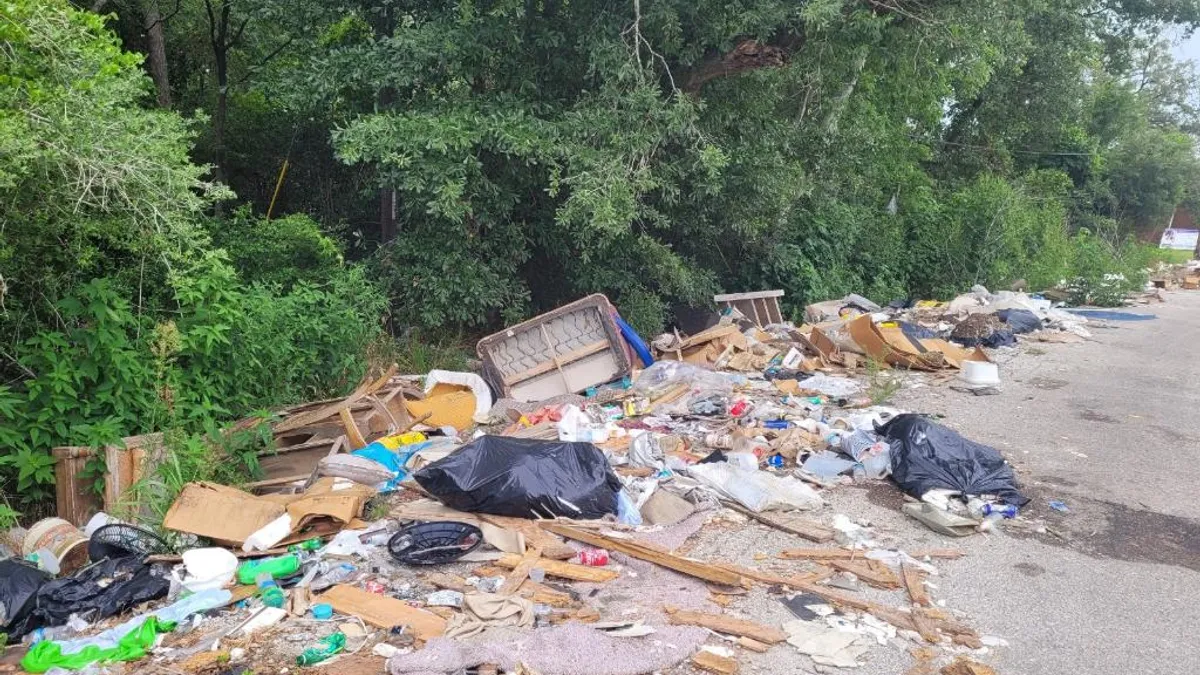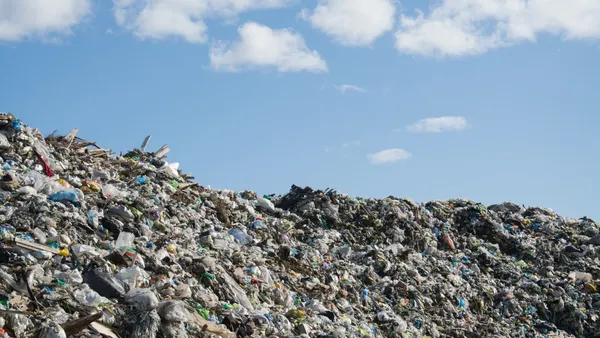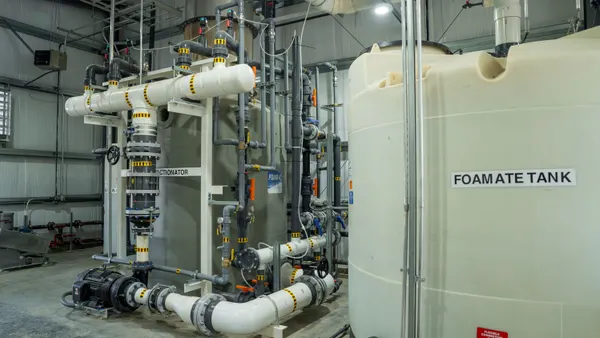Dive Brief:
- Residents in several of Houston’s predominantly Black and Latino communities who said they’ve been plagued by illegal dumping for decades are hopeful things could finally change now that the U.S. Department of Justice is investigating the city for alleged civil rights violations.
- Although residents and activists applauded the DOJ announcement, some said the investigation does not go far enough in addressing other systemic, statewide problems with how Texas handles issues such as landfill permitting.
- Activists hope the DOJ investigation will give more of a voice to overburdened communities. Residents want illegal dumping concerns addressed once and for all. Others also want more agency on additional waste management issues, such as their opposition to the expansion of a Houston landfill run by WM.
Dive Insight:
Experts say the DOJ investigation is a notable step toward addressing environmental justice on a national level. Last week, the DOJ’s Civil Rights Division announced it will investigate whether the city ignored frequent complaints of illegal dumping from residents in Black and Latino neighborhoods. The investigation stems from a complaint filed by Lone Star Legal Aid, which it made on behalf of residents in Trinity and Houston Gardens Super Neighborhood region.
Houston’s Solid Waste Management Department, police department, neighborhoods department and the city’s 311 service request line are all a part of the investigation, the DOJ said.
Juan Antonio Sorto, a Houston resident who regularly experiences high volumes of litter on his street, said he routinely sees piles of construction waste, old furniture, household trash and, on a recent day, several toilets. Neighbors have had to deal with animal carcasses and sometimes even dead bodies, the DOJ alleges.
Sorto, an active member of Houston’s Super Neighborhood Council, has dealt with illegal dumping since at least 2001, when he moved to his northeast Houston neighborhood adjacent to the Trinity/Houston Gardens area. Other neighbors have described living with the issue for much longer, he said.
“Elected officials for decades have known about [residents’] concerns as a community. The only difference between now and 30 or 40 years ago is that we have legal representation now,” he said.
The city of Houston calls the DOJ investigation baseless, and Mayor Sylvester Turner in a news release last week said the city aggressively responds to dumping issues and has recently ramped up fines for littering and spent millions of dollars to alleviate the situation. The city has not responded to requests for comment as of press time.
Soon after the DOJ announcement, Sorto said the city “sent every dump truck in the neighborhood to clean up,” an abrupt response he hasn’t seen before. He is skeptical the sudden cleanup of his neighborhood will last. “It’s clean now, but that’s not the solution we’re asking for.”
Houston’s issues are also symptomatic of a larger environmental racism picture that won’t be solved in one federal investigation, said Robert Bullard, a longtime environmental justice advocate, a distinguished professor at Texas Southern University and a member of the White House’s Environmental Justice Advisory Council.
Bullard says he’s cautiously optimistic about the DOJ investigation as a “step in the right direction.” Yet he believes the DOJ should widen its scope to also investigate state departments, including the Texas Commission on Environmental Quality, which he said plays “a major role in the way discriminatory environmental decisions are made at the state level.”
Even if Houston works hard to clean up overburdened neighborhoods and respond equitably to all citizens’ trash complaints, the city is still unable to intervene in certain other waste-related instances, such as when residents protest landfill expansions, Bullard said.
One example is playing out in the Houston neighborhood of Carverdale, where residents — most of whom are Black or Latino — are protesting the proposed expansion of WM’s Hawthorne Park Landfill. “The city of Houston does not control [landfill] permitting or siting of facilities,” he said. “Permitting is with TCEQ, so if a company wants to put in a municipal Subtitle D landfill, Houston has no say,” he said.
The proposal calls for expanding the landfill perimeter to about 40 acres and allowing a height of 127 feet, an expansion that could allow it to operate for another 46 years, Houston Public Media reported. At a recent public hearing, residents said the landfill has negatively affected their health and property values. WM had not responded to requests for comment as of press time.
TCEQ attorney Anthony Tatu told residents the agency can only consider whether an application meets the necessary technical aspects; it doesn’t have the authority to consider community demographics when granting permits, Houston Public Media reported.
Bullard said these responses illustrate how little power or voice residents of overburdened communities have when state departments create or enforce laws.
“The city of Houston is low-hanging fruit, but we want it to go to the tree, which is rotten to the core,” he said.











